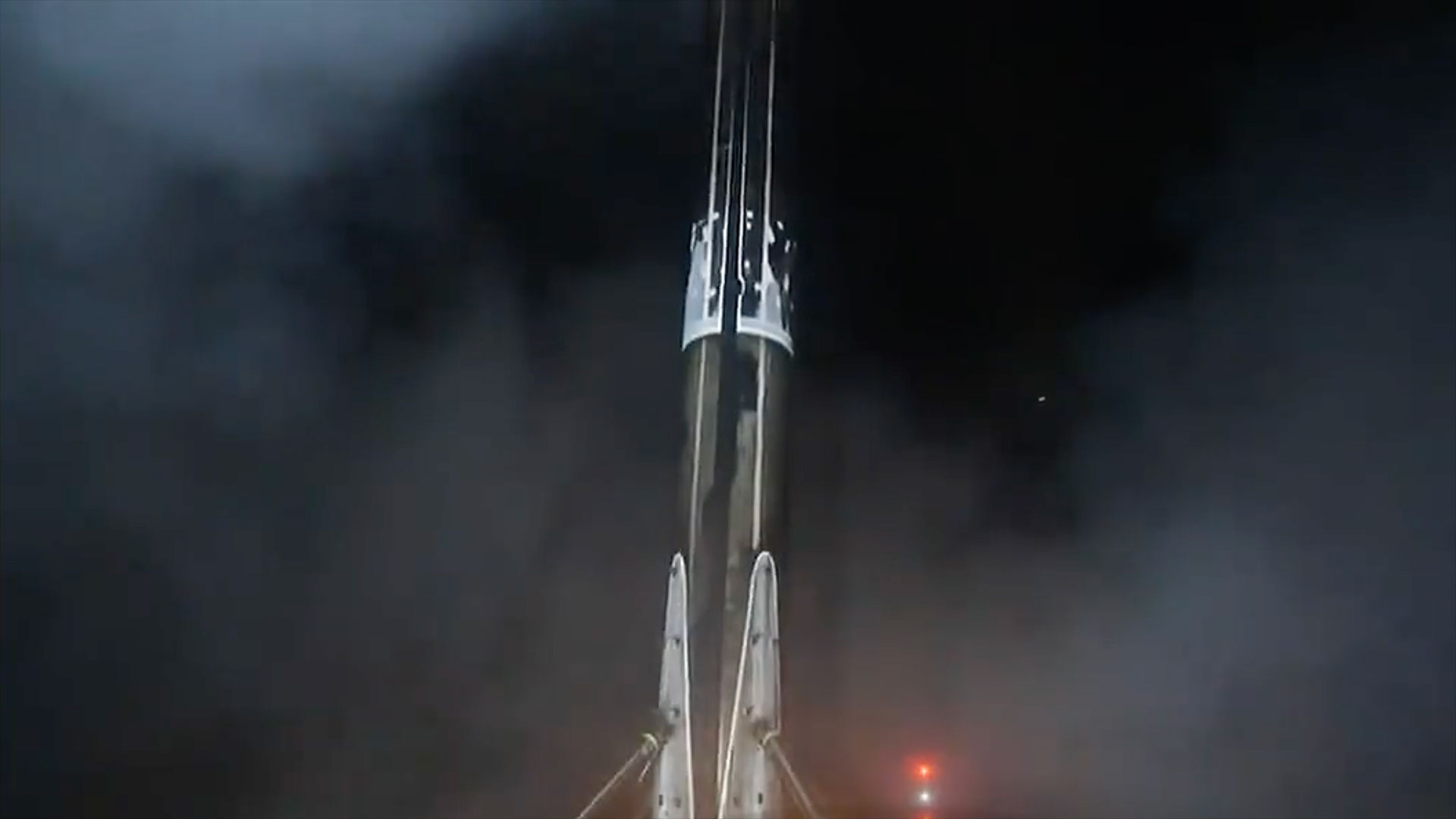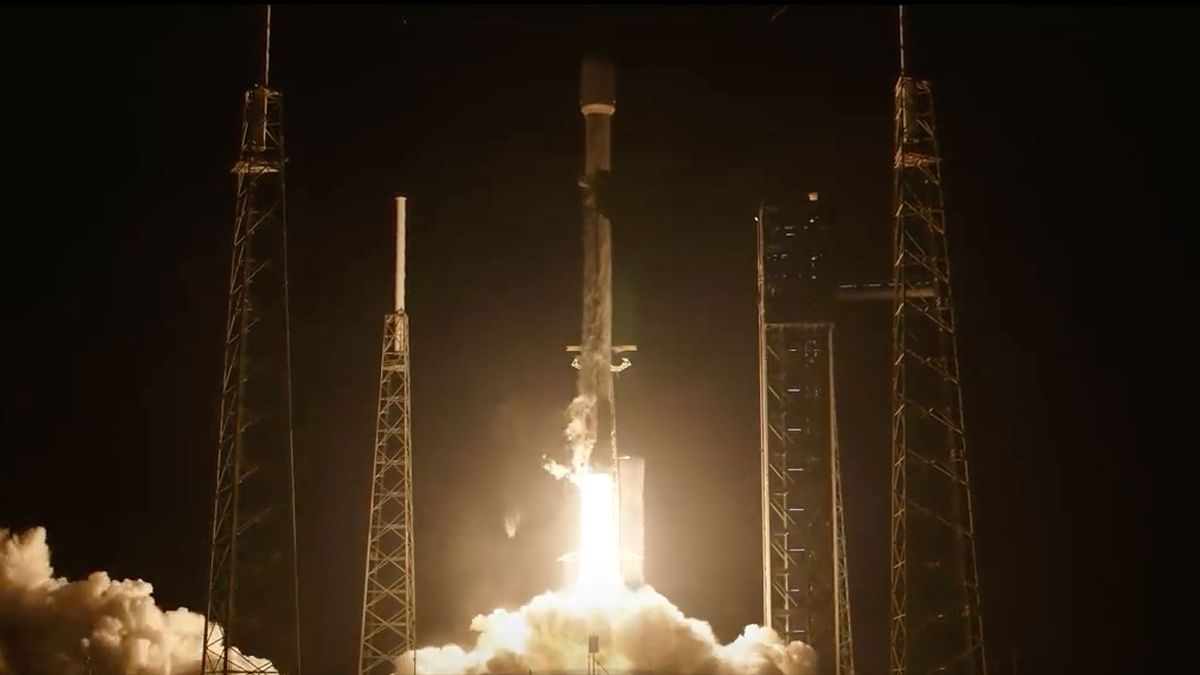SpaceX has once again broken its rocket reuse record.
A Falcon 9 rocket launched 23 of SpaceX's Starlink Internet satellites from the Cape Canaveral Space Force Station in Florida on Friday (April 12) at 9:40 p.m. EDT (0140 GMT on April 13).
This is the 20th liftoff for this particular Falcon 9 first stage SpaceX mission description, setting a new reusable identity for the organization. The mission was launched on the 43rd anniversary of the first launch of NASA's reusable space shuttle, the Space Shuttle, which first flew today in 1981.
Related: Starlink satellite train: How to see and track it in the night sky

To schedule, Falcon 9's first stage came down to Earth for the 20th time, landing about 8.5 minutes after launch aboard the drone ship A Shortfall of Gravitas, which was docked in the Atlantic Ocean off the coast of Florida.
Falcon 9's upper stage, meanwhile, towed 23 Starlink satellites into low Earth orbit (LEO). The spacecraft docked there 65.5 minutes after liftoff.
SpaceX founder and CEO Elon Musk wants to help humanity colonize Mars and achieve various other ambitious exploration achievements. Rocket reusability is an important part of this vision, helping to reduce the cost of space travel and increase its speed.
So SpaceX's reusable records won't last long. The previous mark — 19 flights for the Falcon 9 booster — was first set in December 2023, then repeated in February and March 2024.
SpaceX has now launched 38 orbital missions so far in 2024. Most of them are dedicated to building its Starlink broadband megaconstellations. Nearly 5,650 operational satellites.

